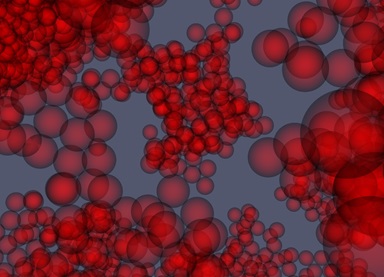Soft matter impacts every aspect of our day-to-day life. We encounter such materials in the form of plastic bags, toothpaste, shaving foam, liquid crystals in LCD screens, automotive lubricants, “slimy” biological materials, colloidal aggregates, and so on. This class of materials includes
polymers, composites, colloids, liquid crystals, viz., materials whose structure is determined through a large number of weak interactions. A delicate interplay of entropy of energetic interactions determines the structure of soft matter.
The Soft Matter group’s focus is on the interface between chemistry, physics, materials science, biology and chemical engineering. The main research verticals of the Soft Matter Group are as follows:
Sustainability and Climate: The global need for sustainability calls for reduced reliance on petrochemical-derived materials through optimal utilization of materials, achieving the maximum functionality possible, recycling and reuse of materials, and replacement with bio-resourced and biodegradable systems.
Healthcare: This is one of the prime focuses in the group and includes research in drug delivery, medical diagnostic devices, microbial growth inhibition, sensing and motion of bacteria and stem cells. Various research groups have been able to deliver promising results through experimental and modelling studies.
Design of Highly Functional Materials: This requires a fundamental understanding of the macroscopic properties of materials and their relationship with the composition and the microstructural details. The research in this domain encompasses design of porous materials, networked soft solids at interfaces or in the bulk, polymer nanocomposites with exceptional functionality and precipitation of ultrafine particles. Microfluidics is one of the main tools being used on-chips techniques for creation of designer materials.
Colloids and Interfaces: The Soft Matter Group also focuses on fundamental problems in fluid mechanics and colloids and interfaces which includes atomization and drying of colloidal films, tuning of shape, size and size distribution of particles using novel and in-house synthesized polymers and colloidal particles.
Modeling and Simulations: The group also has expertise in multiscale modeling and simulation studies of polymers, composites, and nanoparticles using techniques such as all-atom and coarse-grained molecular dynamics simulations, particle nucleation and growth models, population balance models, several in-house developed models and programs designed for providing mechanistic understanding.
The diverse expertise available in the department to address problems at microscopic, mesoscopic and continuum scales ensures a multi-scale understanding of any problem, a typical characteristic of soft matter. The group collaborates extensively with industry to take science from our laboratories to technologies that can be deployed. We also actively engage in dialogue with key decision makers to guide policies for climate and sustainability.
Associated Faculty
- Abhijit Majumder
- Rajdip Bandyopadhyaya
- Jayesh Bellare
- Guruswamy Kumaraswamy
- Hemant Nanavati
- Sayantan Dutta
- Jyoti Seth
- Rochish Madhukar Thaokar
- Mukta Tripathy
- Venkat Gundabala

